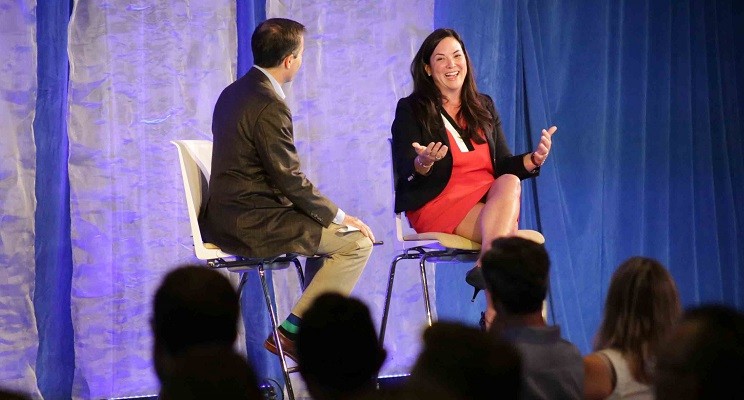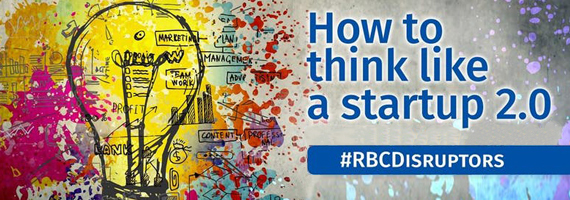Every great Silicon Valley story features a big pivot.
Instagram started as a Foursquare-style check-in app. Slack came from a studio making mobile games. And YouTube was originally pitched as a video-dating site.
These stories share one thing, the secret that drives Silicon Valley’s best: the growth mindset. It’s about failing fast, learning fast and growing fast.
The principles of the growth mindset are straightforward: candour, ambition, resilience and diversity. But that doesn’t mean filling out the CARD is simple.
Candour
Incident response startup PagerDuty is a great example of the growth mindset in action.
At an RBCDisruptors event on July 18, PagerDuty CEO Jennifer Tejada said their culture of candour has room for everything, even stupid questions.
“I ask the question that often other people are afraid to ask,” she said. “That candour gives everybody else the freedom to be inquisitive in a non-judgmental way.”
PagerDuty runs a 24/7 IT alert platform that lets other companies know when critical services are down. That means PagerDuty itself can never go down—and when it does, it’s a big deal.
Tejada said that after an outage, the company holds “blameless post-mortems” to discuss what went wrong and how to fix it.
Using honesty and empathy gets people to open up, and that candour helps the company learn from its mistakes.
“If something’s not working, we’re going to talk about it,” said Tejada. “But we’re not going to blame people in that process.”
Ambition
Growing companies can’t be complacent—every success comes with the challenge to top it next time. That means instilling ambition to be the best, and to always be better.
And it’s not only about ambitious leadership. That ambition needs to be baked into the corporate culture from the bottom up.
“Part of my job is to articulate a vision that is approachable and consumable for every single person in our business,” Tejada said.
PagerDuty now runs an internal annual conference, PagerCon, where engineers and product managers give talks about their work and where the company is headed.
“We want a perfect experience for our customers,” Tejada said. “We put a lot of pressure on ourselves collectively to do that.”
Resilience

A key part of the growth mindset is the ability to come back from failure.
In October 2016, a cyberattack took down Dyn, one of the fundamental routing services behind major Internet services including Twitter, Spotify and GitHub. Parts of PagerDuty’s service also relied on that same provider, so they were absent when it was needed most.
The company worked to have its services back online within minutes, and the outage exposed a new point of failure that they now account for in all their planning.
Tejada said that’s one kind of resiliency: the ability to come back, keep working and pull through major obstacles. It’s not just about infrastructure, though—the same idea applies to people.
“Resiliency is about allowing teams to try new things and fail,” she said.
Diversity
The last ingredient for a growth mindset is diversity, which drives innovation in Silicon Valley and beyond.
More than a third of the Valley’s population is born outside the U.S., compared to around 13.4% for the rest of the country. PagerDuty reflects that diversity: Nearly two-thirds of the leadership team in San Francisco was born outside the U.S.
“We think about diversity and difference as upside, not downside,” Tejada said. “All the data points to better business outcomes, better respect, better results, better shareholder returns, better customer offerings if you have a diverse workforce.”
Tejada saw diversity as a way to improve performance once she joined PagerDuty in 2016. Now, half of the engineering leadership team is women, as is half of the executive team.
Tejada says they take their time in hiring, and will leave positions open if they can’t find the right fit.
“While you’re still growing it’s easiest to change the shape of your gender equity or your pay equity,” she said. “And we’ve just started with gender. There are a whole bunch of other classes that we need to look at.”

